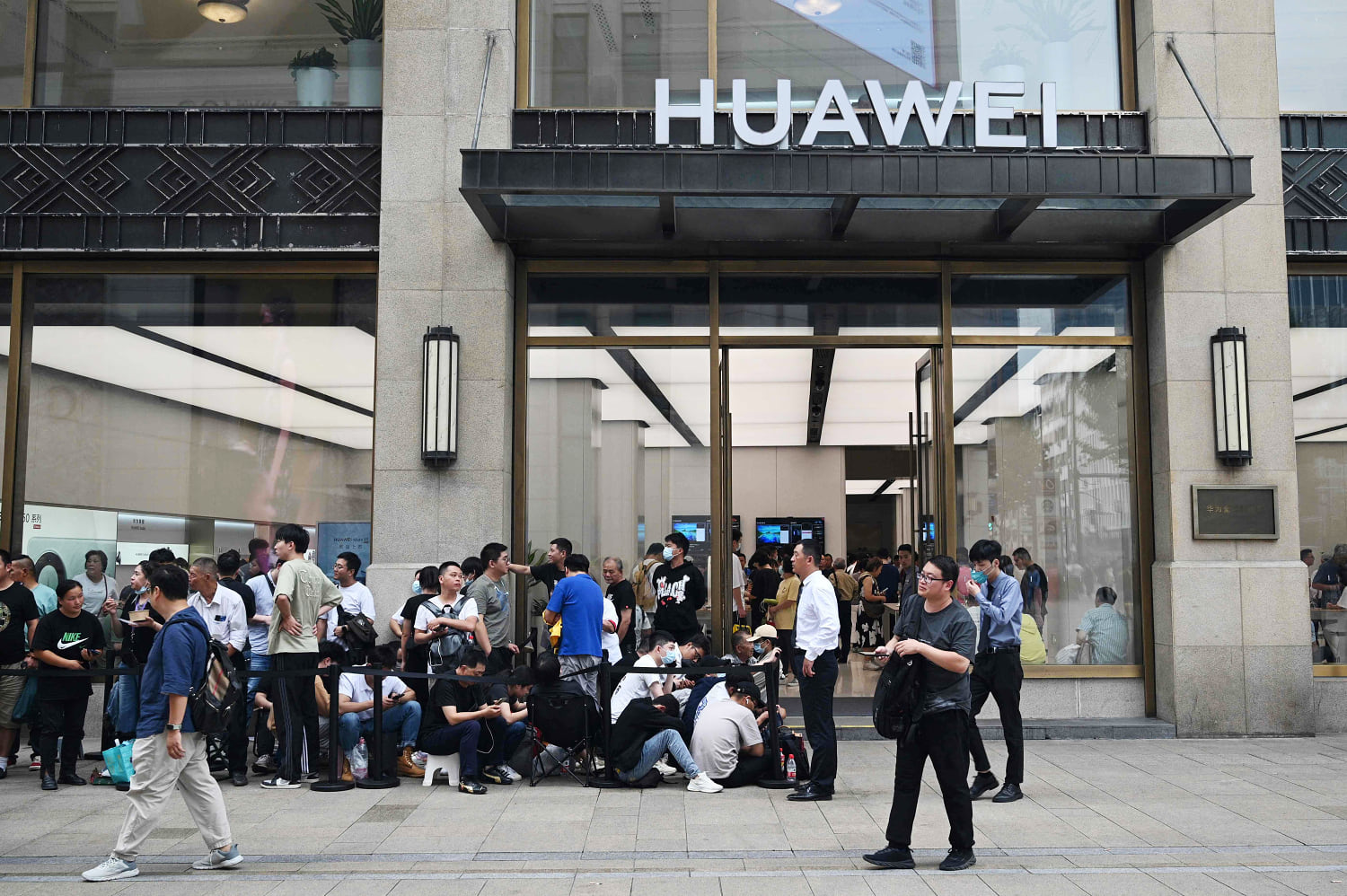[ad_1]

BEIJING — A packed stadium and a millions-strong online audience were eager Monday to hail a Chinese breakthrough that would defy the United States. But the high-profile launch by Huawei — a tech giant whose products are restricted by the U.S. and others over national security fears — kept fans, experts and rivals guessing about its secretive new smartphone.
The Chinese firm revealed no new details about the phone, whose purported capabilities have fueled frenzied speculation in the U.S. and Europe about whether Beijing had achieved a major advance in semiconductor chip technology that would worry Washington.
The lack of new information about the Mate 60 smartphone series left many fans in China disappointed, but still eager to show their support for a product that has been accompanied by great nationalistic fanfare.
“Buying domestic chips is to support my own country,” 18-year-old Zhiwen Yang told NBC News outside a Huawei store in Beijing. He said he has been using Apple’s iPhone but was planning on buying the new Mate 60 series for its homegrown 5G capabilities.
Semiconductor secrets
Reviews from users and analysts have indicated that the phone is able to use 5G rapid internet speeds thanks to Chinese-made advanced semiconductor chips, brains that power everything from toasters to fighter jets and that have emerged as a key battleground between the world’s two largest economies.
This advancement was not thought to be possible after the U.S. imposed a barrage of sanctions in 2019 aimed at crippling Huawei’s smartphone division, which relied heavily on the U.S. and its allies for critical chips and software.
The U.S. and allies cited national security concerns in imposing the bans, with Huawei accused of facilitating spying for the Chinese government — claims it has denied.
But news of the new phone — the Mate 60 Pro+ will cost from 8,999 yuan ($1,230) — indicated that Huawei was not just back to rival Apple but that Beijing may have been able to build these chips at home despite U.S. sanctions raised concerns in Washington.
While Huawei operates throughout the world, it wasn’t clear when the new series would go on sale outside of China.
Commerce Secretary Gina Raimondo said last week at a U.S. House hearing that she was “upset” after learning of the reported breakthrough. The White House said it was trying to get more information about the chip.
China accused the U.S. of acting against Huawei to make up for its own failings.
“The U.S. government’s suppression of Chinese companies is not about national security, but about using illegal and unfair means to stop Chinese companies from succeeding when the U.S. is not getting ahead in a normal competition,” foreign ministry spokesperson Wang Wenbin said Monday at a daily news briefing.
Huawei’s chips were produced by Semiconductor Manufacturing International Corp. (SMIC), a Shanghai-based manufacturer which was on a U.S. trade blacklist and was earlier believed to have much inferior capabilities.
The Canadian analysis firm TechInsights said the phone “represents a made-in-China design and manufacturing milestone” that was capable of network speeds equivalent of that of 5G.
Huawei has not officially confirmed that the phone is 5G-capable, but that didn’t stop excited fans in China from being glued to a livestream of Monday’s launch event, with some rushing to stores after it finished.
Only 20 phones were available for sale at a store in Beijing when NBC News visited, despite dozens of people lining up outside with police at bay to quell the occasionally aggressive queues.
Some potential customers were, however, left bemused over the lack of information about the much-anticipated products.
The launch event ended with a group of people on stage singing and waving Mate 60 smartphones with flashlights switched on. “Why didn’t they talk about it? Everyone watched it because of the smartphone,” said Maniler, a user of the social media platform Weibo.
[ad_2]
Source link
